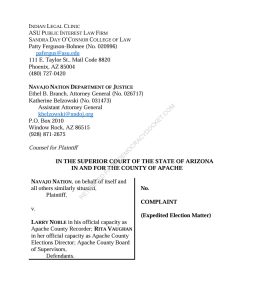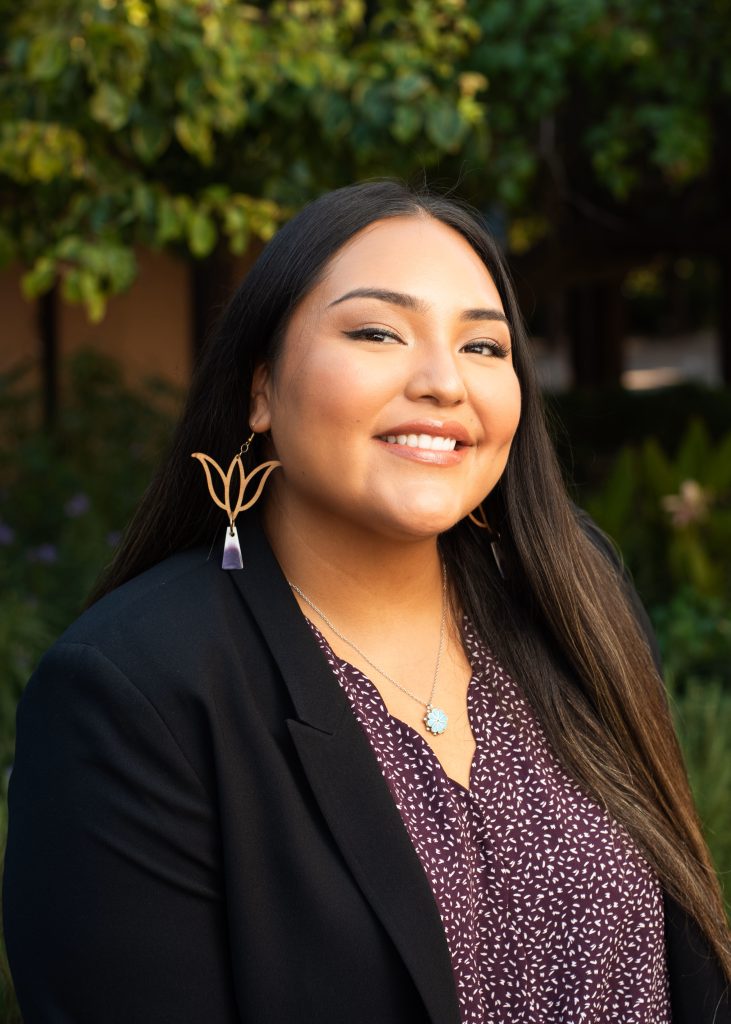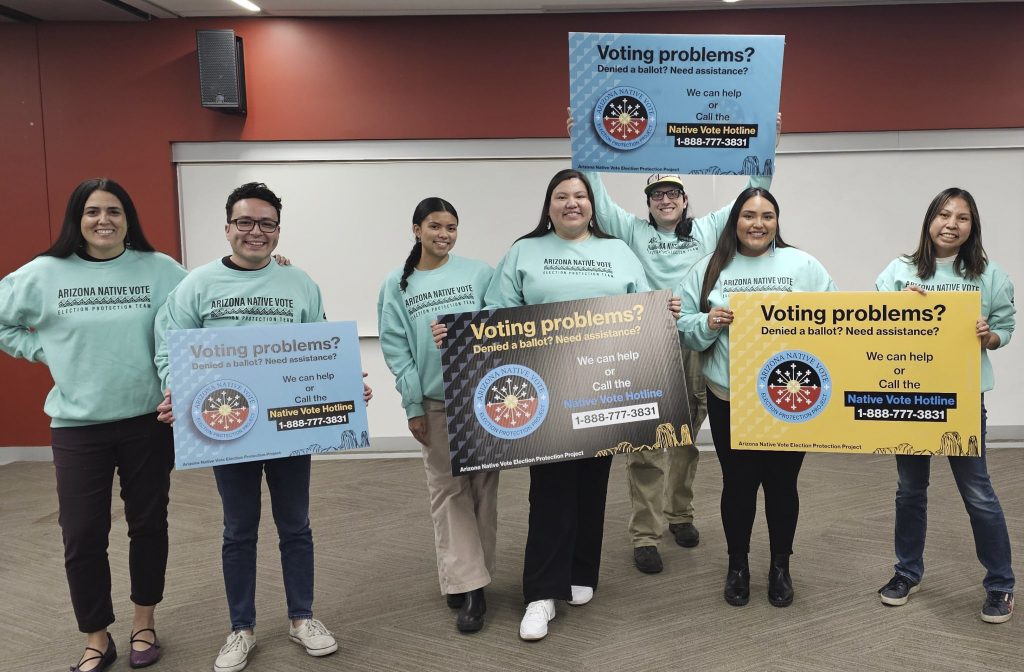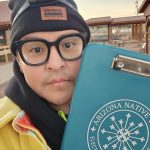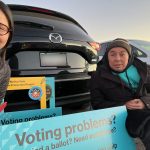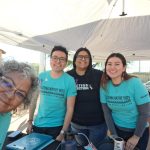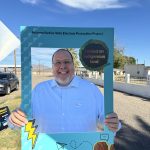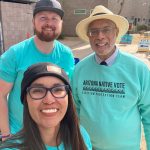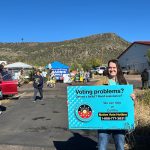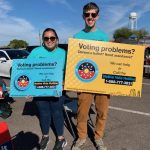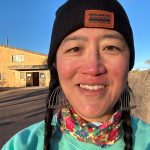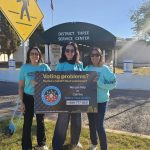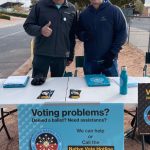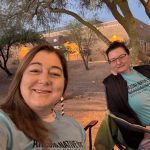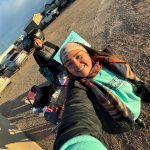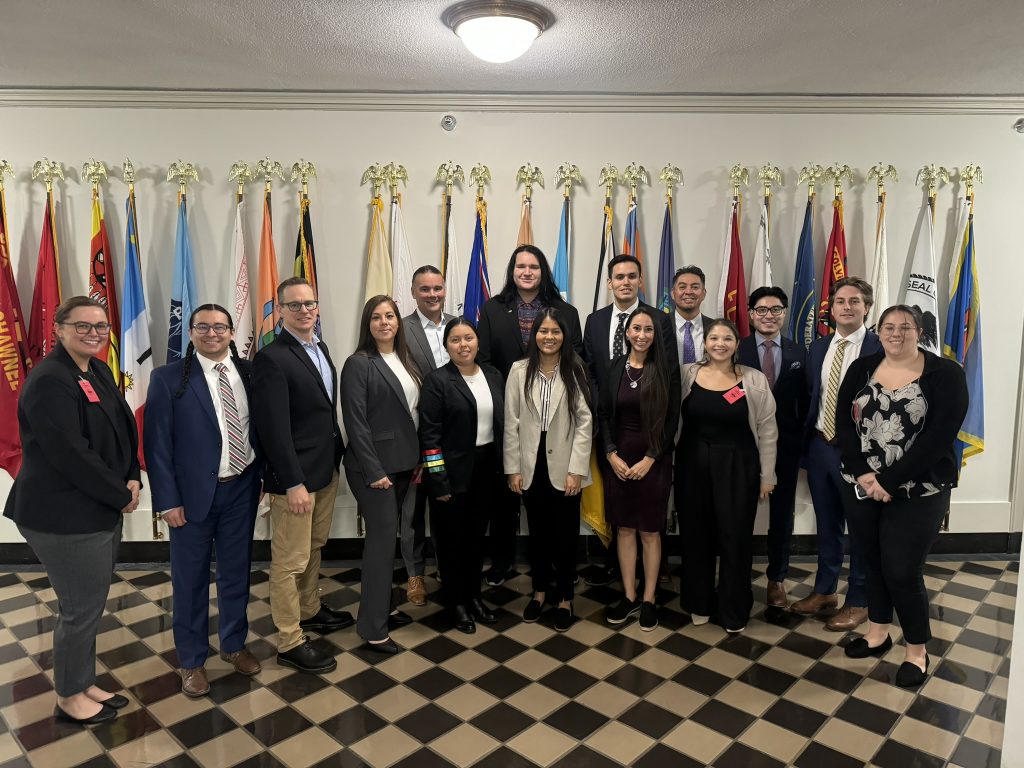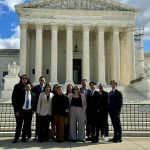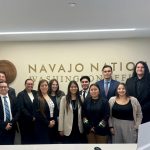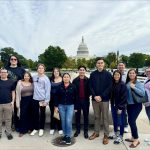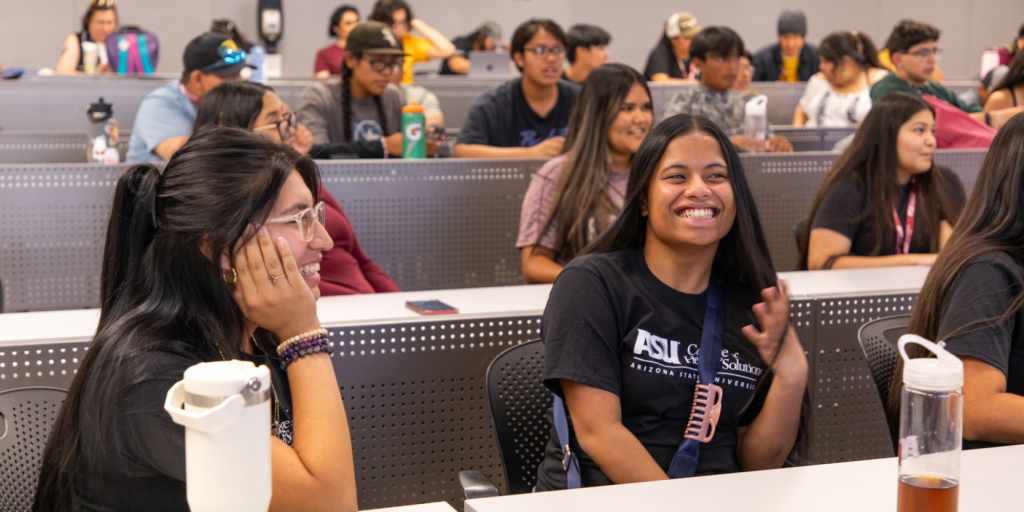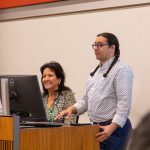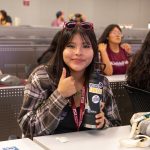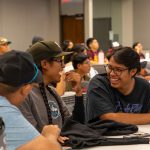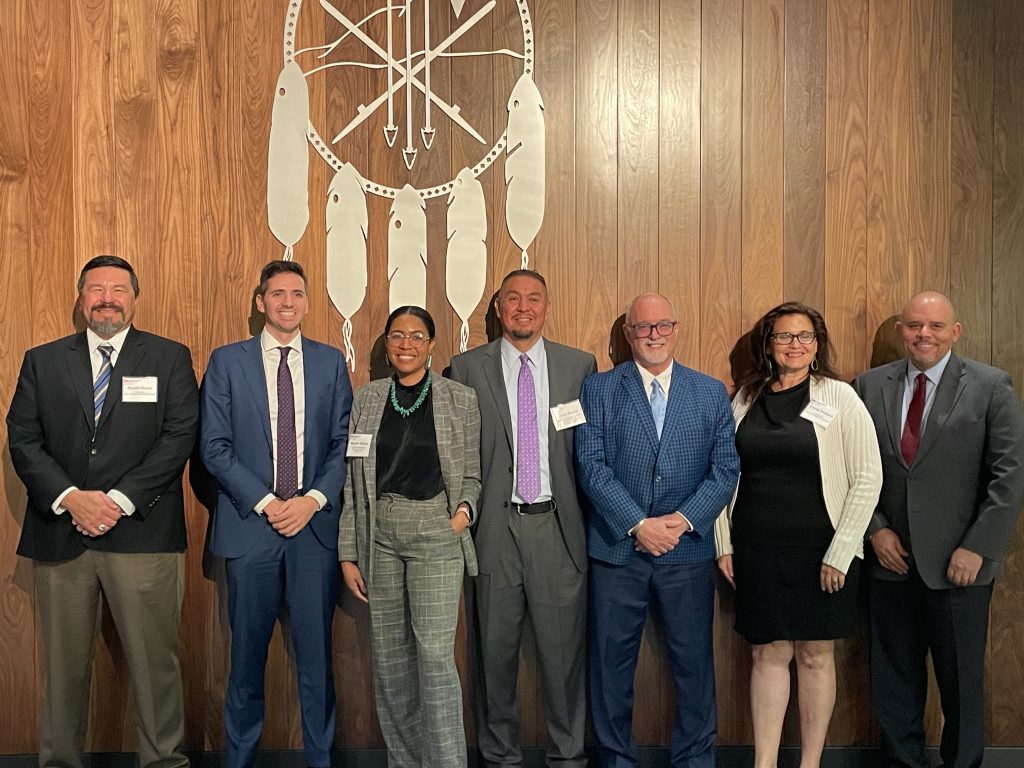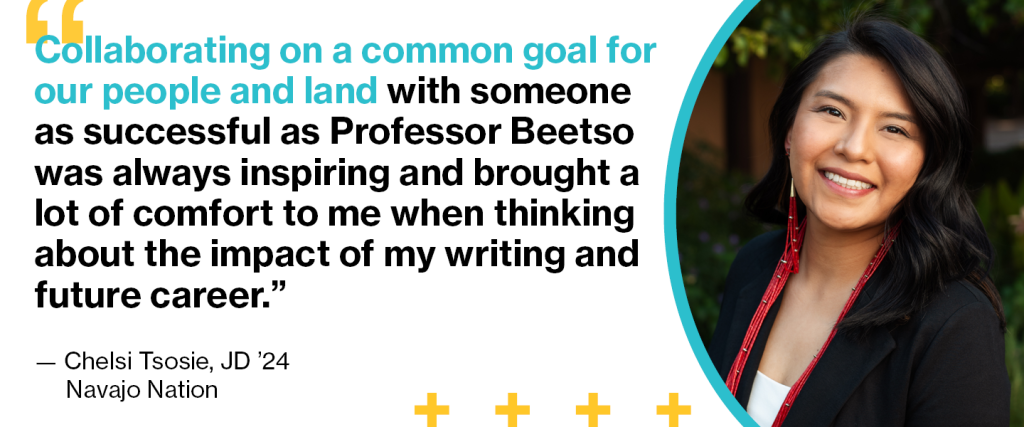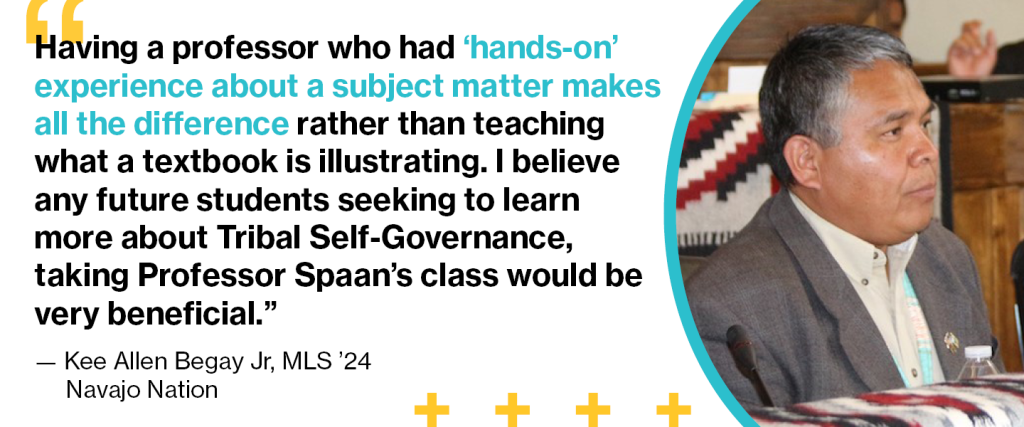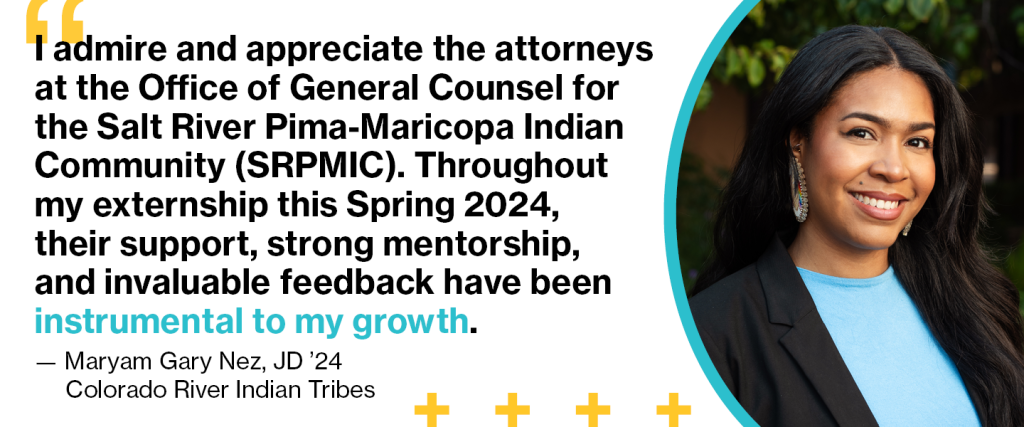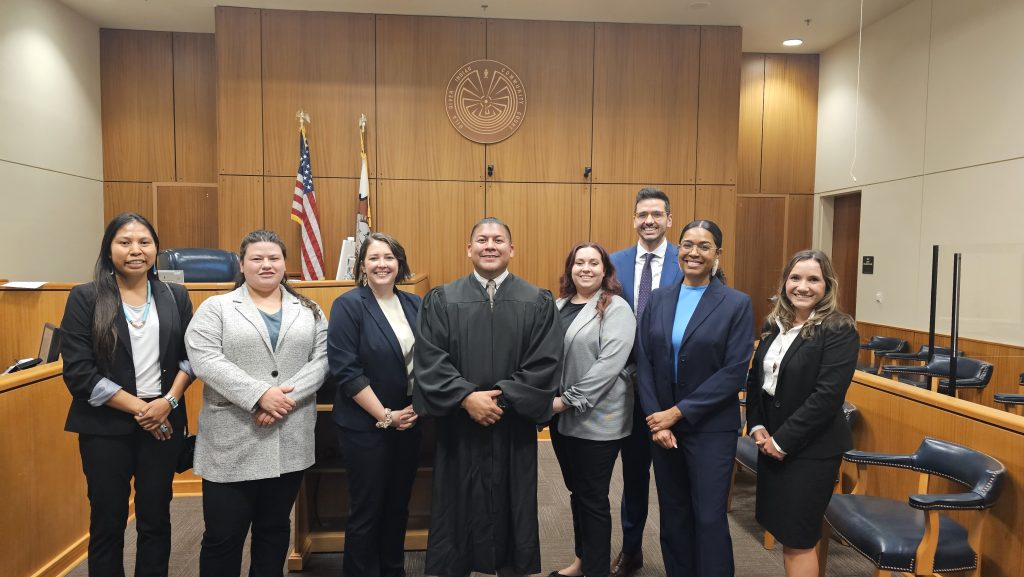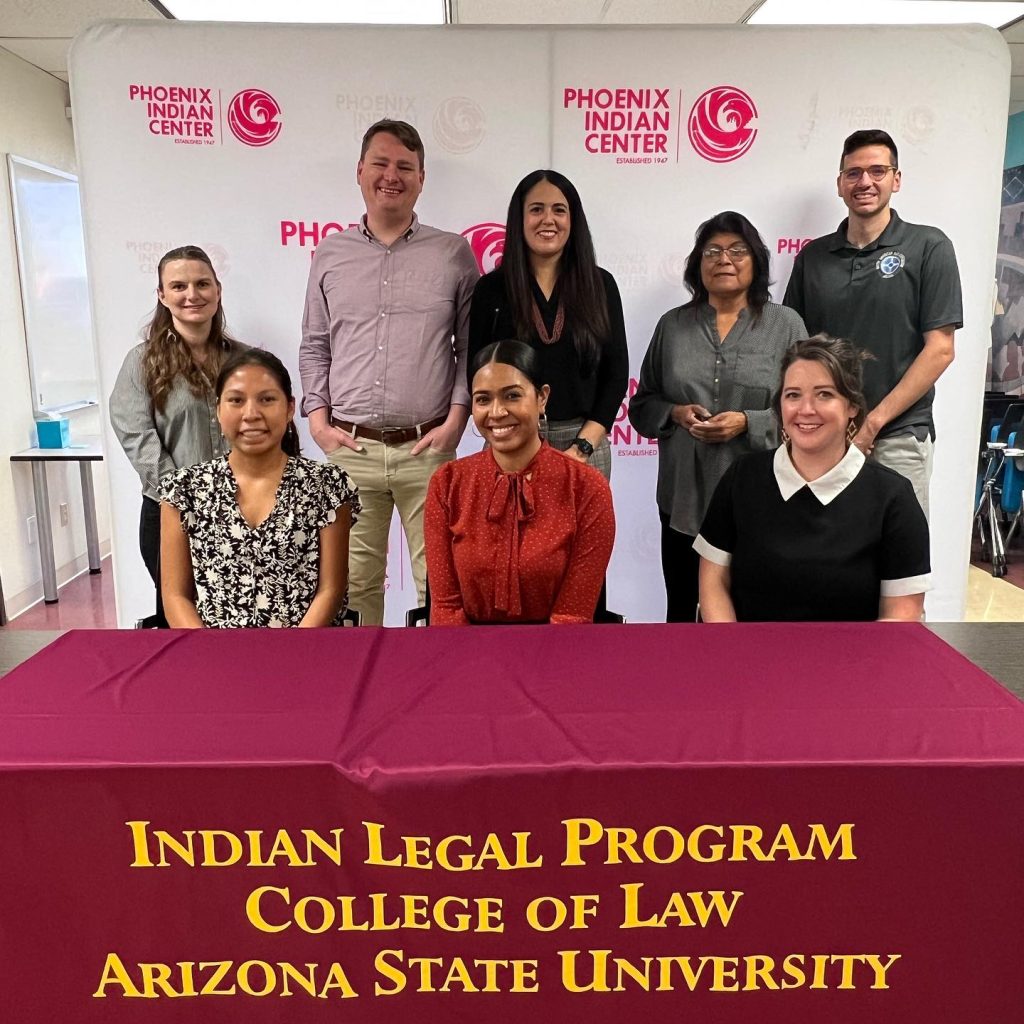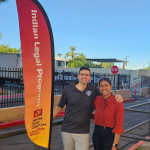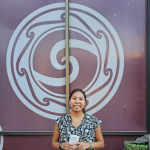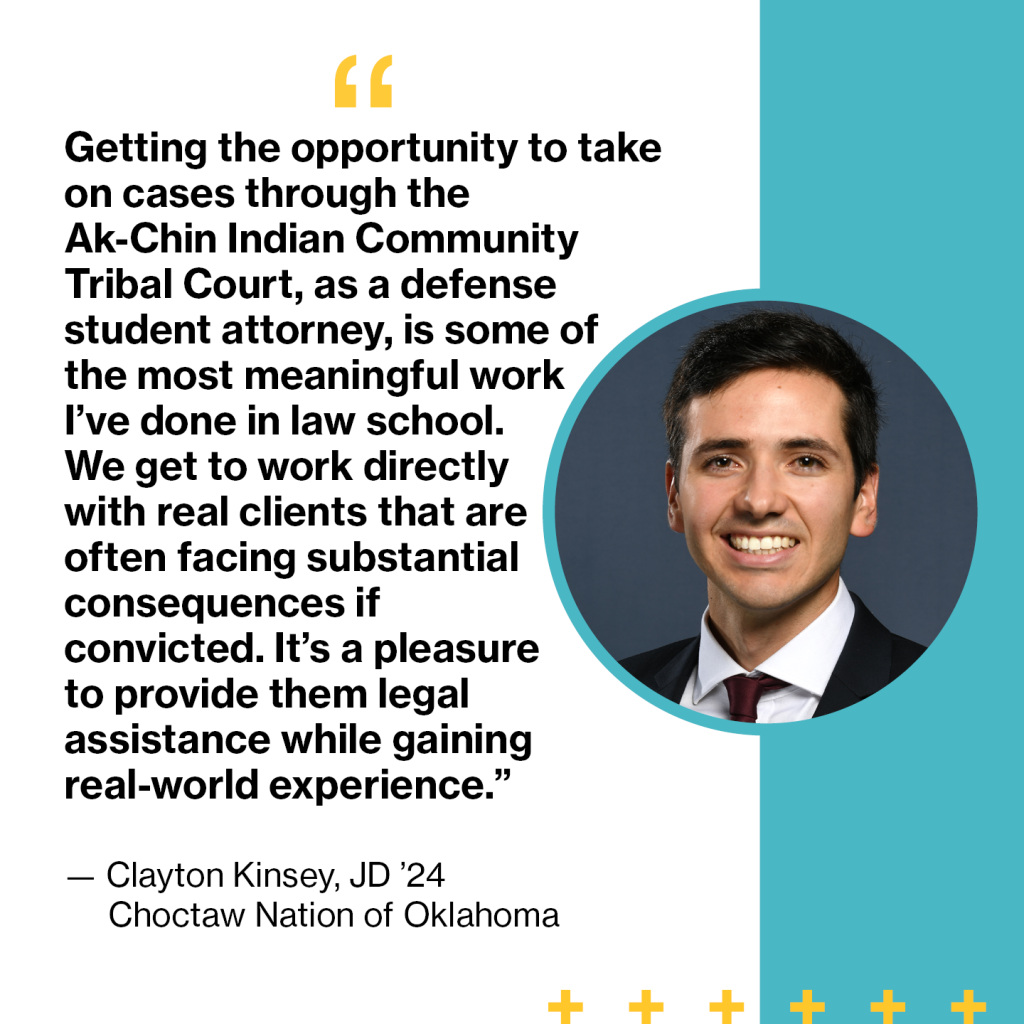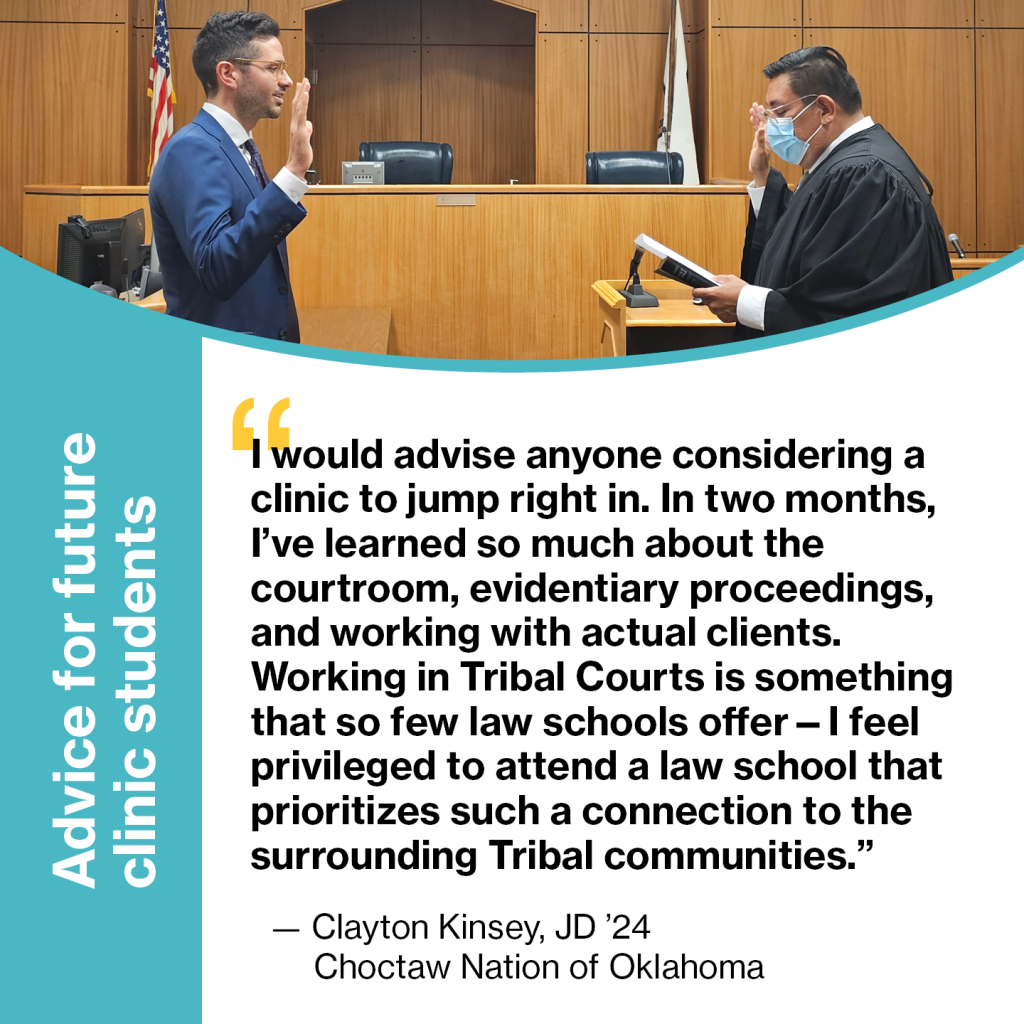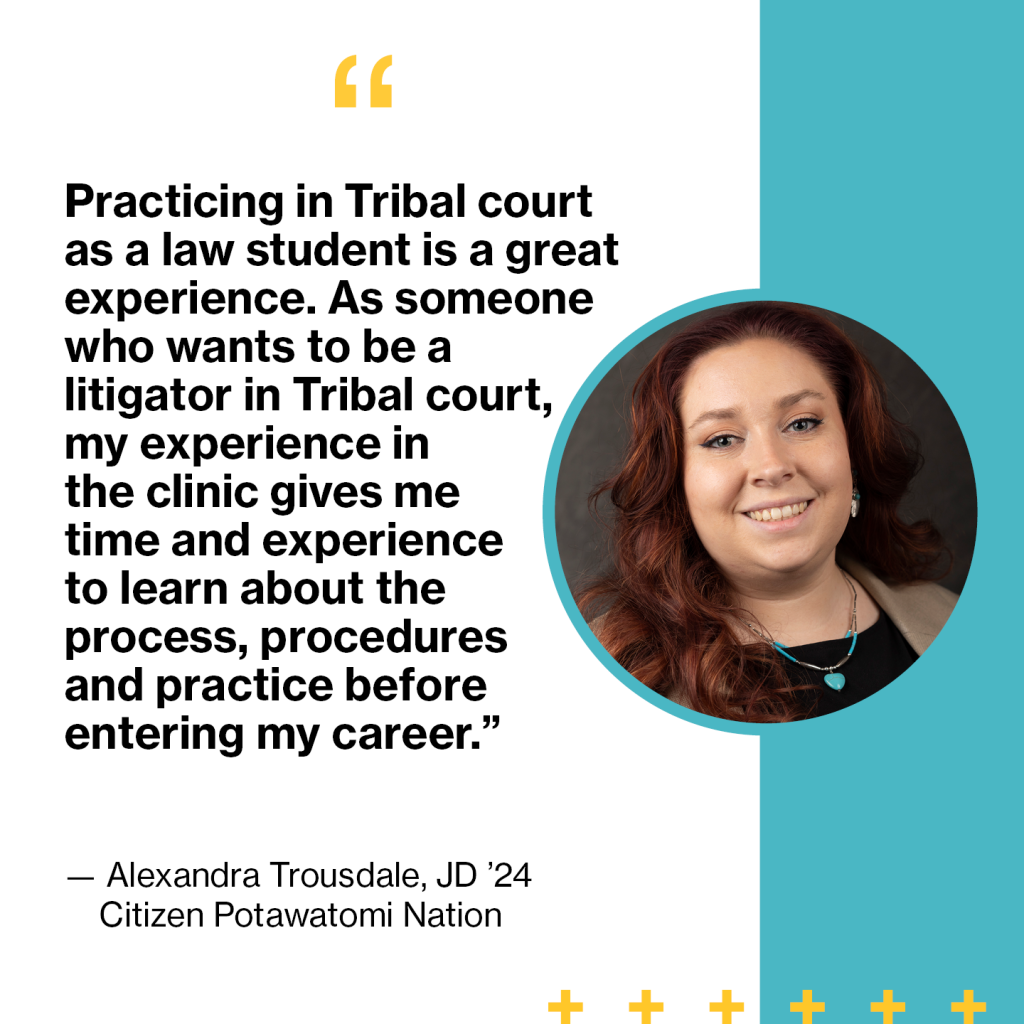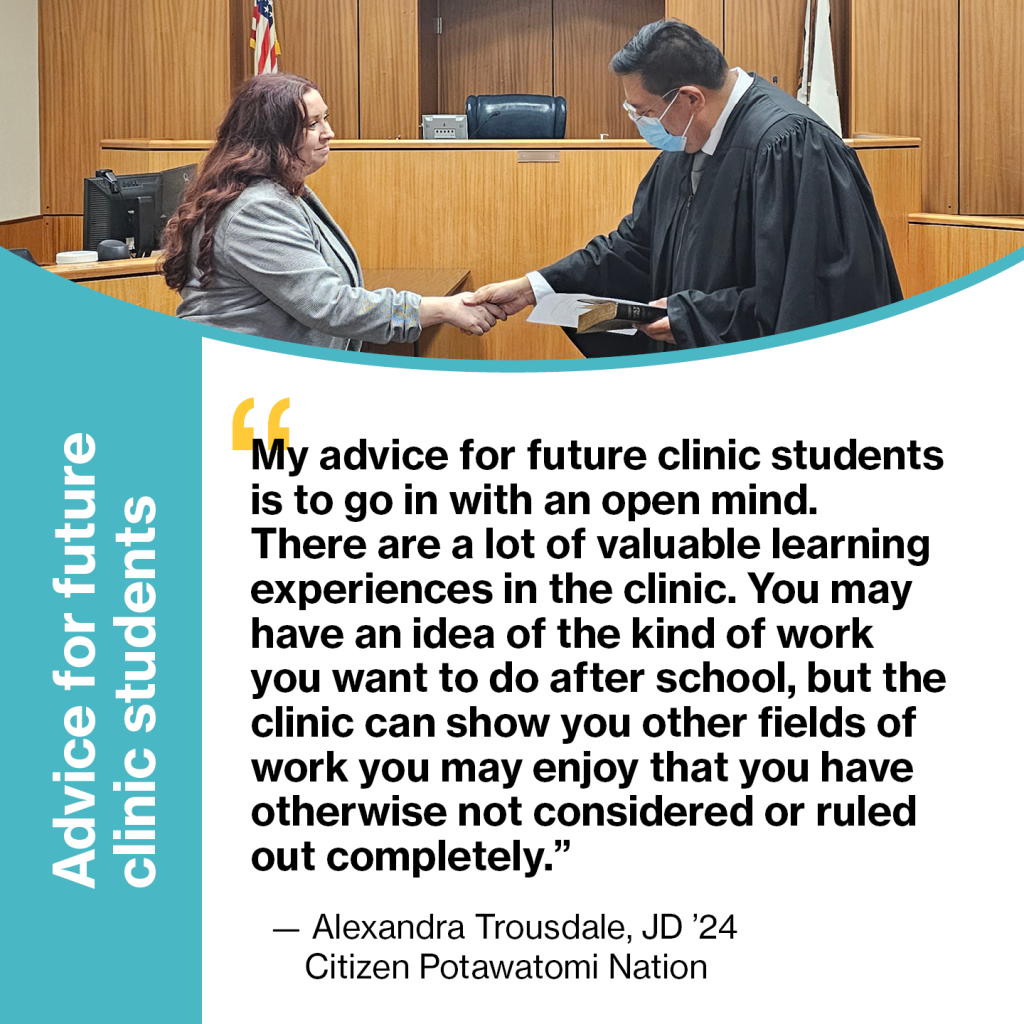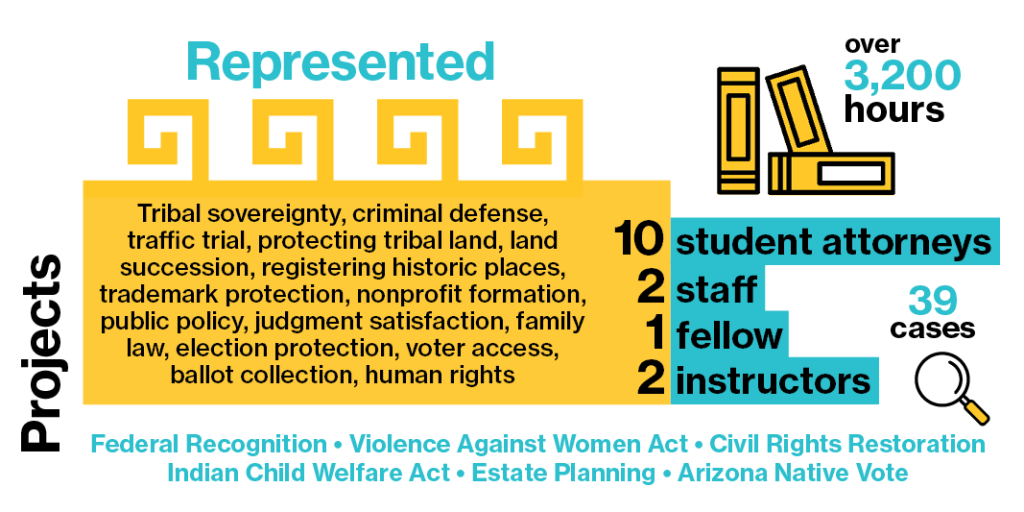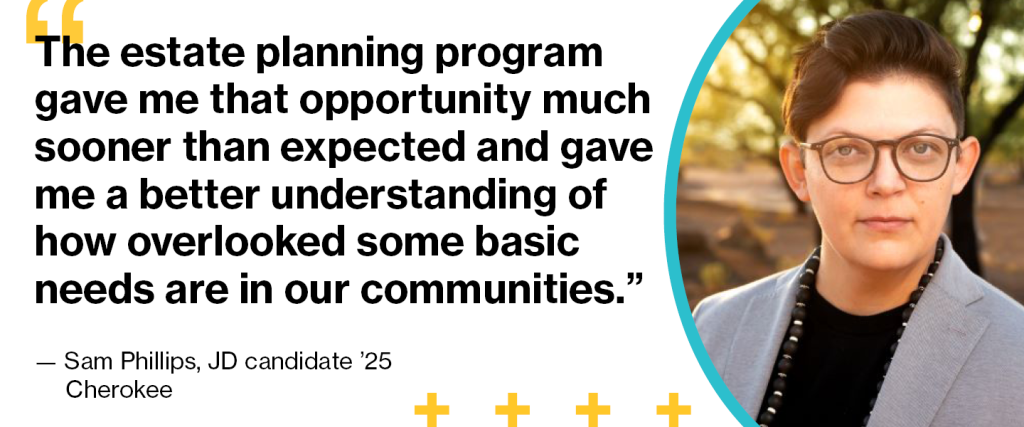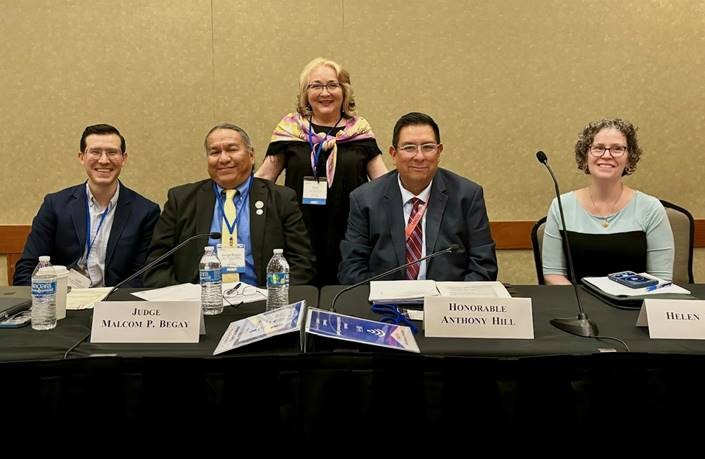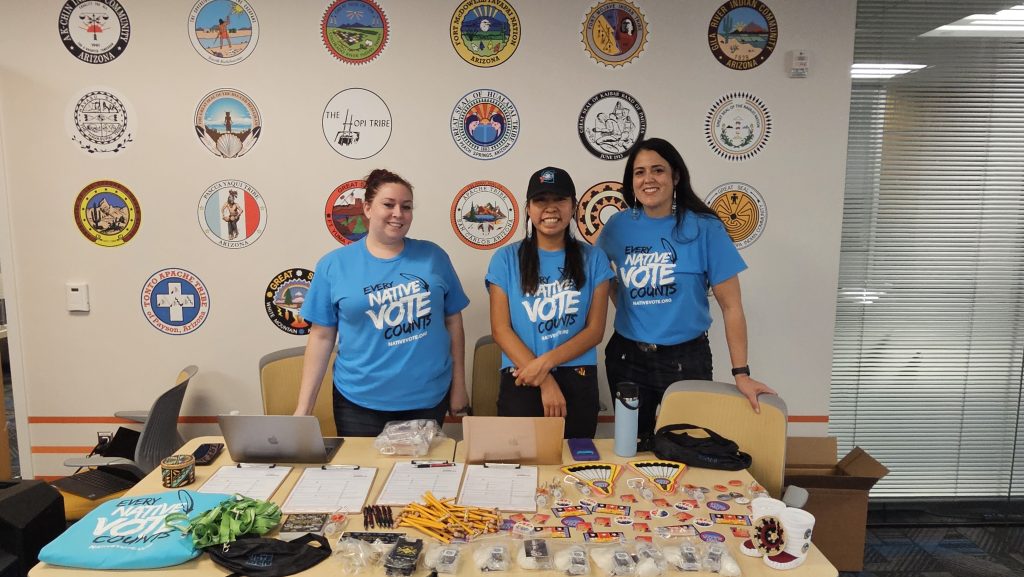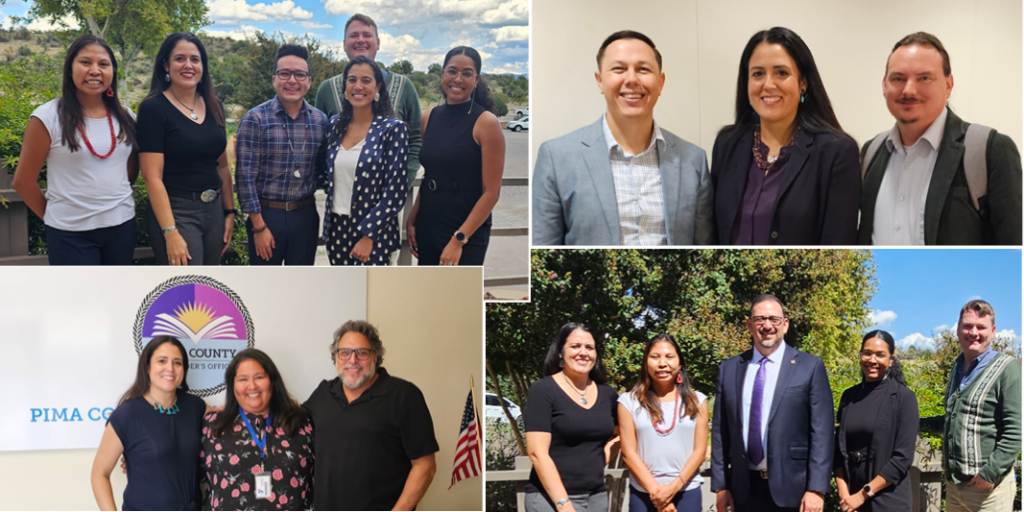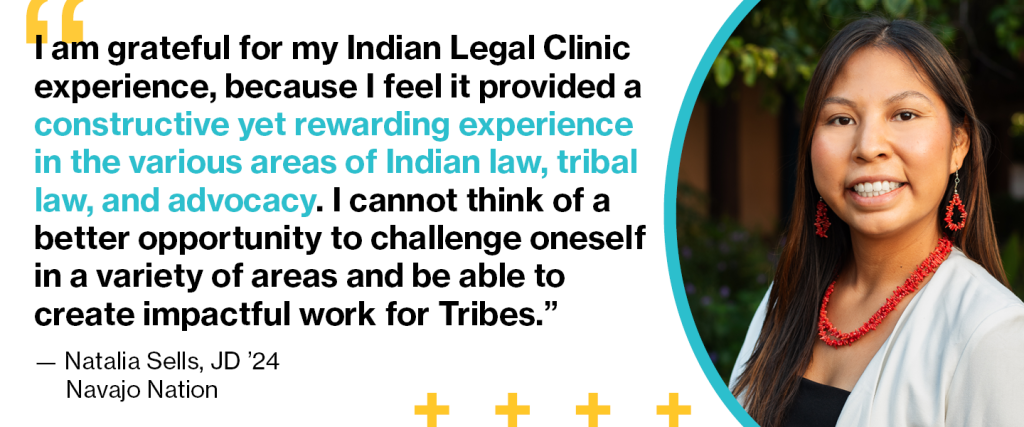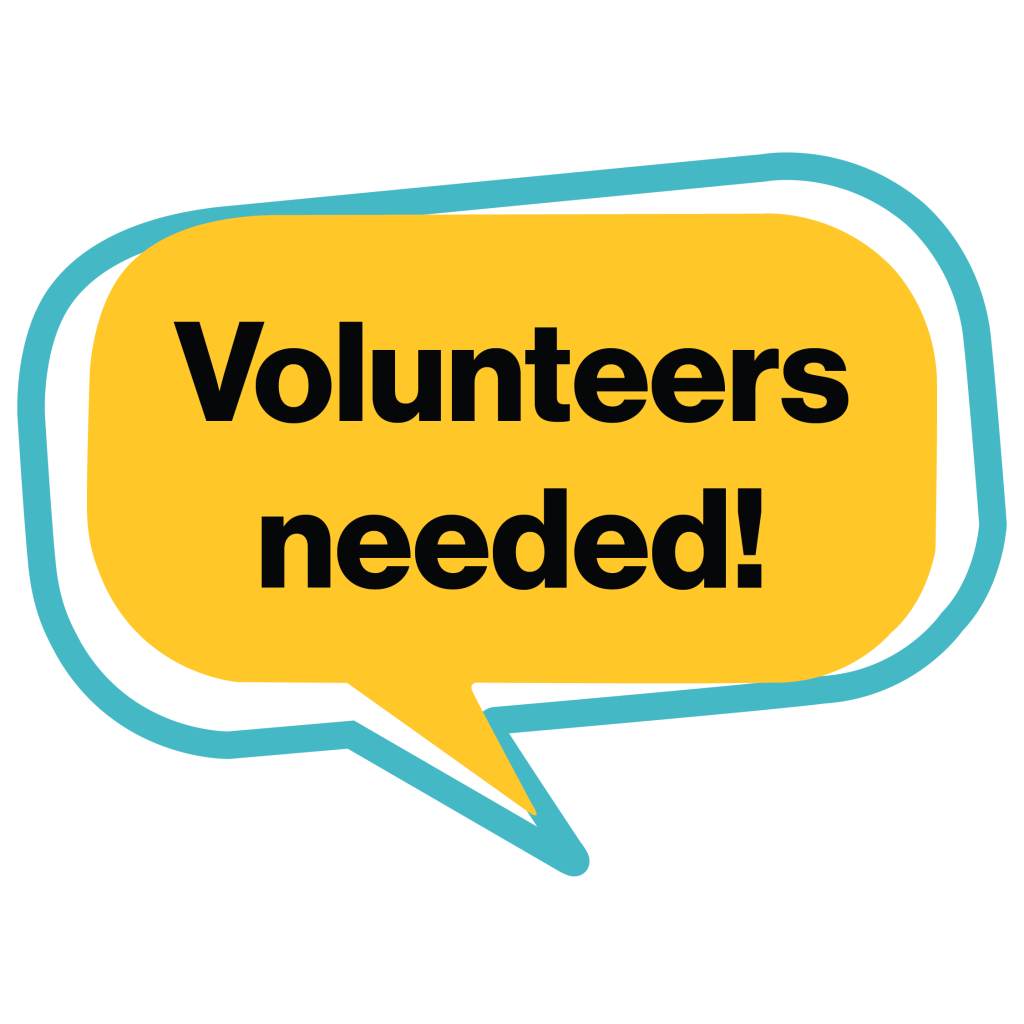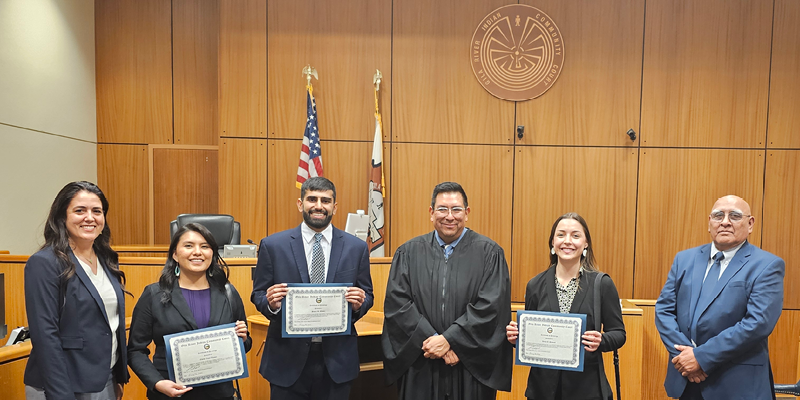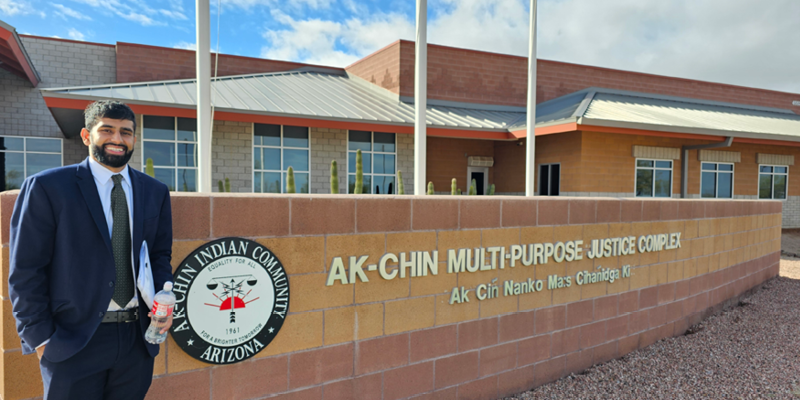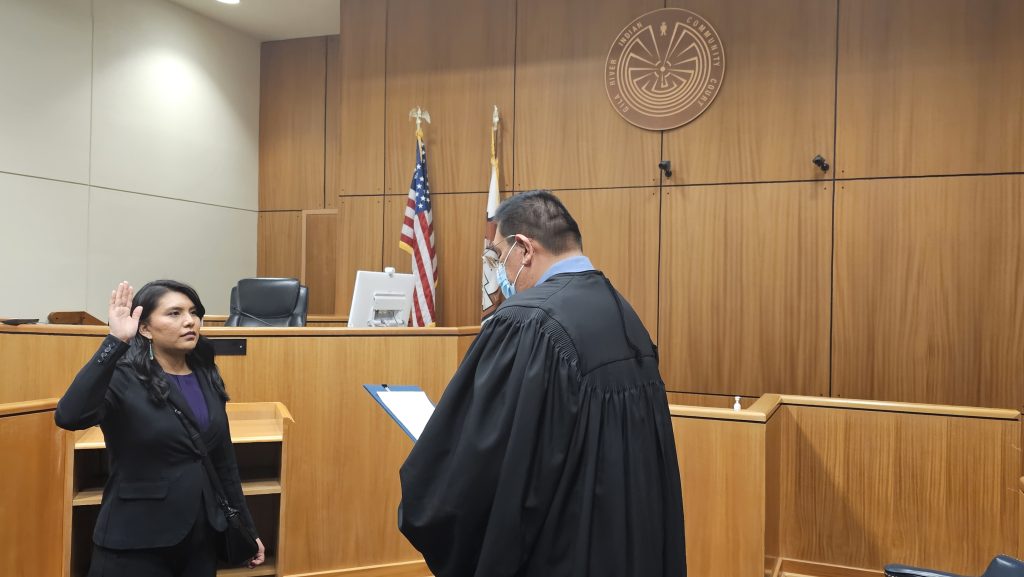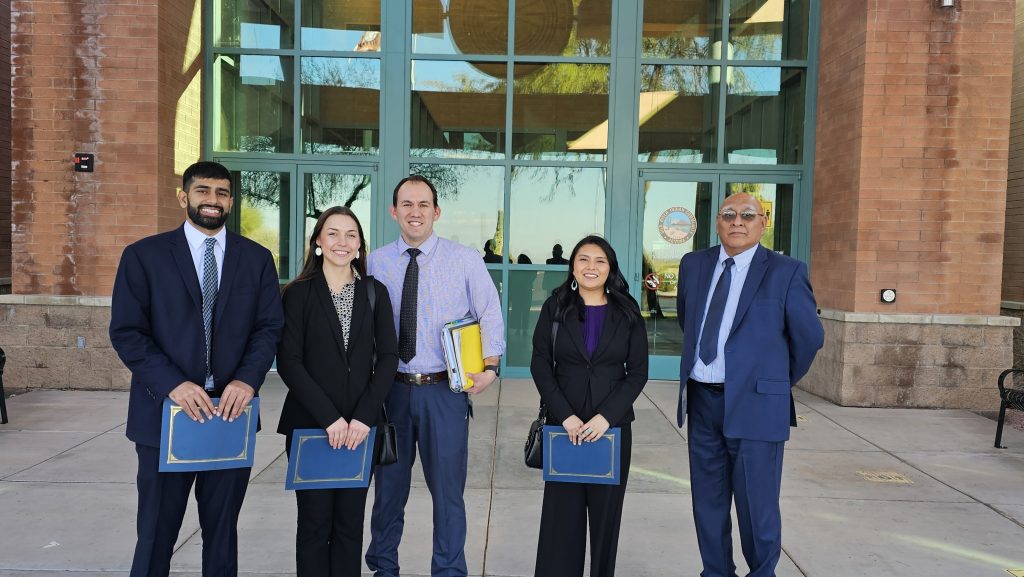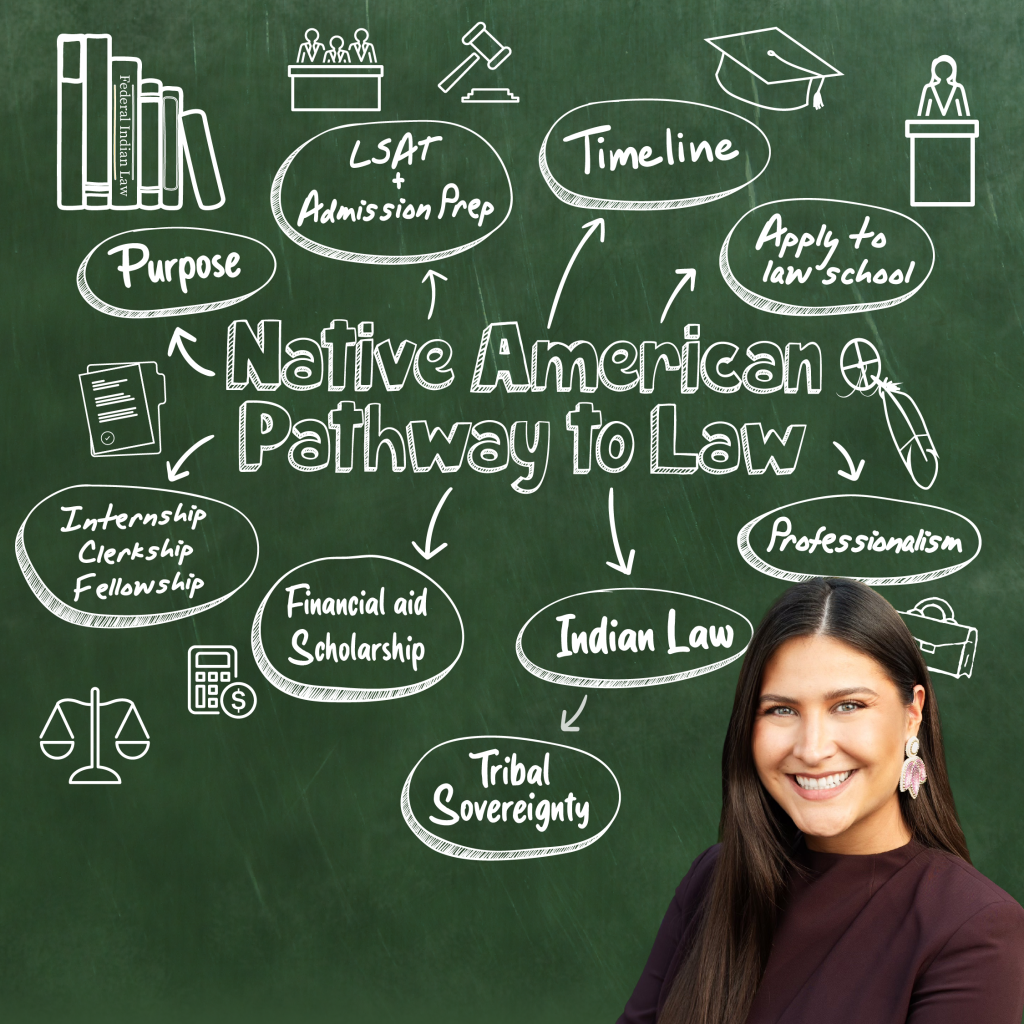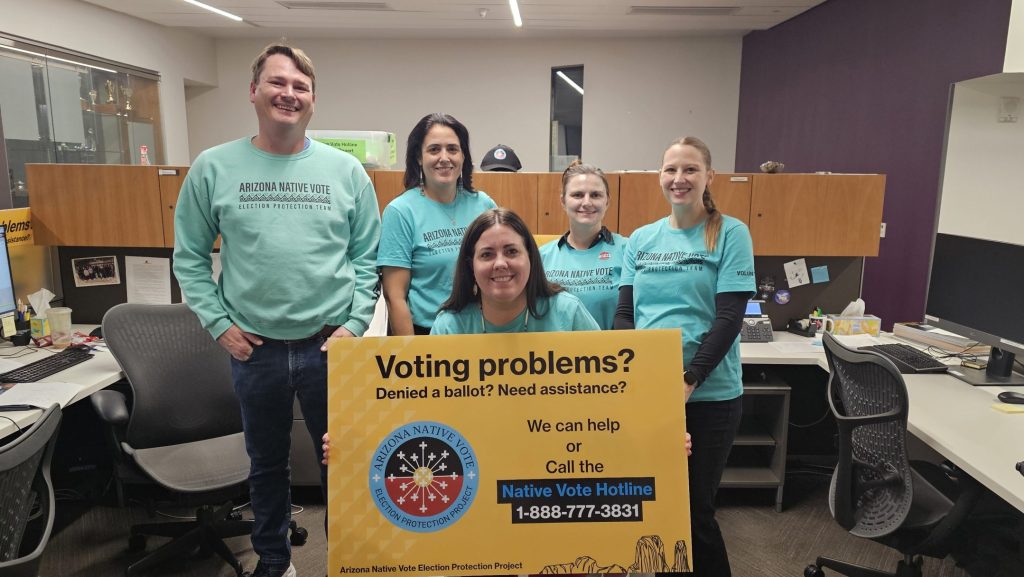
On Election Day, Indian Legal Clinic Director Patty Ferguson-Bohnee and Navajo Nation Attorney General Ethel Branch filed a lawsuit on behalf of the Navajo Nation against Apache County officials for violating Tribal members’ fundamental right to vote, and other crucial rights guaranteed by federal and state law. Torey Dolan (’19) helped run the Arizona Native Vote hotline and submitted her declaration to support the lawsuit.
Apache County officials failed to comply with essential voting requirements, including opening polling locations on time, providing correctly printed ballots, maintaining adequate ballot supplies and long lines with wait times up to 2-3 hours – denying many Navajo voters the opportunity to vote. A voter reported to the Arizona Native Vote Hotline that elders left because standing in the 40-degree weather for extended periods was too much hardship.
Third-year law students Shandiin Herrera and Sadie Red Eagle, in the field at voting locations in Apache County, were quoted in Cronkite News article “Voters in Navajo Nation face polling issues on Election Day; Apache County extends voting hours.” Candace French (’17), an attorney voting in Window Rock, was nearly turned away when she presented her Tribal ID at an Apache County polling site. Dolan was also interviewed by azcentral, detailing the issues reported to the Arizona Native Vote hotline.
Many Navajo voters attempted to vote but were unable to due to Apache County’s many systemic failings. The Navajo Nation successfully secured a court order to extend voting hours at nine polling sites where Arizona Native Vote Election Protection Project volunteers observed these issues, as well as the locations where Navajo voters reported significant issues to the Arizona Native Vote Hotline. Herrera and Red Eagle defended voters’ rights to the extended voting hours against uninformed poll workers and police presence.
In an ASU News article, Herrera highlighted the extensive current voting barriers Native Americans face in rural communities.
We extend our deepest gratitude to all volunteers, advocates, allies and partners who served as Native Vote Protectors, working tirelessly to amplify Native voting power! This year, over 100 dedicated volunteers served as Native Vote Protectors, assisting voters across multiple polling locations in 12 Tribal communities: the Ak-Chin Indian Community, the Fort McDowell Yavapai Nation, the Fort Mohave Tribe, the Gila River Indian Community, the Hopi Tribe, the Navajo Nation, the Pascua Yaqui Tribe, the Salt River Pima-Maricopa Indian Community, the San Carlos Apache Tribe, the Tohono O’odham Nation, the Yavapai-Apache Nation, and the White Mountain Apache Tribe. Thanks to your efforts, we were able to support voters both through the hotline and on the ground, addressing issues and ensuring that Native voters could exercise their fundamental right to cast their ballots.
This year’s Arizona Native Vote Election Protection Project mighty team includes our Indian Legal Clinic third-year law students Garrett Bryan, Shandiin Herrera (co-lead), Imani Hicks, Morgan Oakes and Sadie Red Eagle (co-lead), under the supervision of Director Patty Ferguson-Bohnee, who ran the hotline with Democracy Director Joel Edman, Maya Araujo, Honore Callingham (’18), Torey Dolan (’19), Jordan Garcia (’23), Blair Tarman-Toner (’20) and Alexander Castillo-Nunez from the Inter Tribal Council of Arizona.

